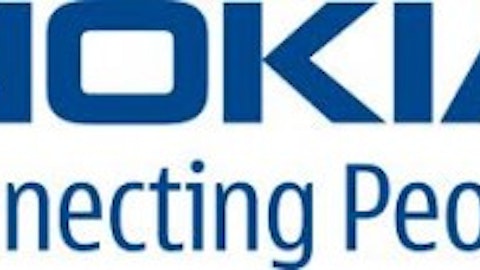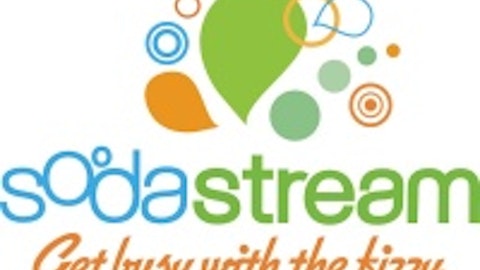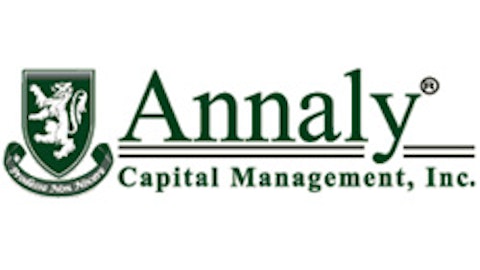SodaStream International Ltd (NASDAQ:SODA), the Israel-based company and the manufacturer of the home soda maker that transforms water into soft drinks and sparkling water, has been recently marked as a potential takeover candidate.

Assuming the rumors are right, it makes the company a strong buy and a strong candidate to add to your portfolio.
The rise of SodaStream
The company traces its origins back to a British firm founded in 1903. SodaStream International Ltd (NASDAQ:SODA) machines were popular during the 1970s and 1980s, and are associated with Generation X. The tiny company changed ownerships at a high pace during the past couple of decades until it was eventually acquired by an Israeli company and finally hit the golden road at the beginning of the decade with an impressive IPO.
The company is now a leading manufacturer of home beverage-carbonation systems sold at major retailers in 45 countries used by over 6 million households. Moreover, the company is only in its early stages of global expansion, and is aggressively attempting to penetrate the lucrative U.S. market, where it estimates to have reached a 1% household penetration level.
Last year was a phenomenal year. Sales reached 1 million units in the fourth quarter, the highest in the company’s history. SodaStream International Ltd (NASDAQ:SODA) is pushing aggressively to expand in the U.S. and the numbers are impressive: Revenue growth was highest in the Americas with a 95% year-over-year rise in the fourth quarter. SodaStream International Ltd (NASDAQ:SODA) also won in Western Europe and Asia with about a 30% increase in sales year over year.
CEO Daniel Birnbaum said that in the most conservative estimates, the company is aiming to reach a 25% penetration rate in Europe by next year. He also said he’d rather under-promise and over-deliver rather than over-promise and under-deliver.
SodaStream becomes a problem for Coke and Pepsi
With less than 1% share of the global carbonated beverage market, the company poses a significant threat to rivals such as Coke and Pepsi. SodaStream is trying to change the way we consume soda. Although it is competing against big players like Coke, Pepsi and Green Mountain Coffee Roasters Inc. (NASDAQ:GMCR), the company has many advantages over the old soda giants. The folks at Coca Cola and PepsiCo should be worried about the rise of SodaStream and its long-term effect on consumer preferences.
SodaStream offers an alternative for those who do not want to carry and store a large number of beverage bottles. This is not just personal comfort, SodaStream truly emphasizes the environmental friendliness of its recyclable bottles. Furthermore, SodaStream allows consumers a cost savings and flexible approach given the variety of flavors it offers. SodaStream also successfully differentiates itself from its competitors based on social responsibility and caring for the environment.
The competition between SodaStream and Coca Cola and Pepsi reminds me of the battle between David and Goliath. SodaStream’s market cap is only $1.5 billion, while Coca Cola and Pepsi have market caps of $176 billion and $123 billion, respectively. Furthermore, SodaStream has earned $58 million (EBITDA) on revenues of $466 million, nothing to compare with Coke’s $13 billion on revenues of $48 billion and Pepsi’s $12 billion on revenues of over $65 billion, respectively. SodaStream has a minor debt of $8 million and about $50 million cash on hand. On the other hand, Coke has debt of $35 billion and sits on $18 billion cash reserve, while Pepsi has $29 billion debt and about $7 billion in cash.
The difference between the story of David vs. Goliath and the story of SodaStream vs. Coca Cola and Pepsi is that now David is not going to defeat Goliath, rather, Goliath is going to acquire David.
Battle over marketing campaigns
SodaStream has previously engaged in clashes against Coke and Pepsi over marketing campaigns. Last year, the companies clashed over a marketing campaign in South Africa. SodaStream launched an outdoor marketing campaign featuring cans and bottles that SodaStream employees collected from dump sites and placed in a giant cage used to illustrate how many bottles and cans a family consumes.
The most famous and recent event was SodaStream’s banned commercial on the last Super Bowl. The ad attacked Coke and Pepsi and was turned down by CBS. Furthermore, the ad focused on SodaStream’s most important advantage over the soda industry giants, which is not using plastic bottles. The ban wasn’t all bad for SodaStream. In fact, the tiny competitor hit both Pepsi and Coke exactly where it hurts. In my opinion, the ban did not hurt SodaStream, on the contrary, I firmly believe its brand awareness has improved.
My Foolish bottom line
SodaStream presents a compelling growth opportunity, not only because it is a serious buyout candidate, but also due to its strong management team, solid fundamentals, decent valuations and tremendous growth potential. With less than 1% share of the global carbonated beverage market, it still has plenty of room to grow. Despite its size, SodaStream is going to cause future headaches to mammoths such as Pepsi and Coke, which obviously increases the probability for a buyout.
The article SodaStream Turns Water Into Fresh Cash originally appeared on Fool.com.
Yaniv Hirsch has no position in any stocks mentioned. The Motley Fool recommends Coca-Cola, PepsiCo, and SodaStream. The Motley Fool owns shares of PepsiCo and SodaStream. Yaniv is a member of The Motley Fool Blog Network — entries represent the personal opinion of the blogger and are not formally edited.
Copyright © 1995 – 2013 The Motley Fool, LLC. All rights reserved. The Motley Fool has a disclosure policy.




